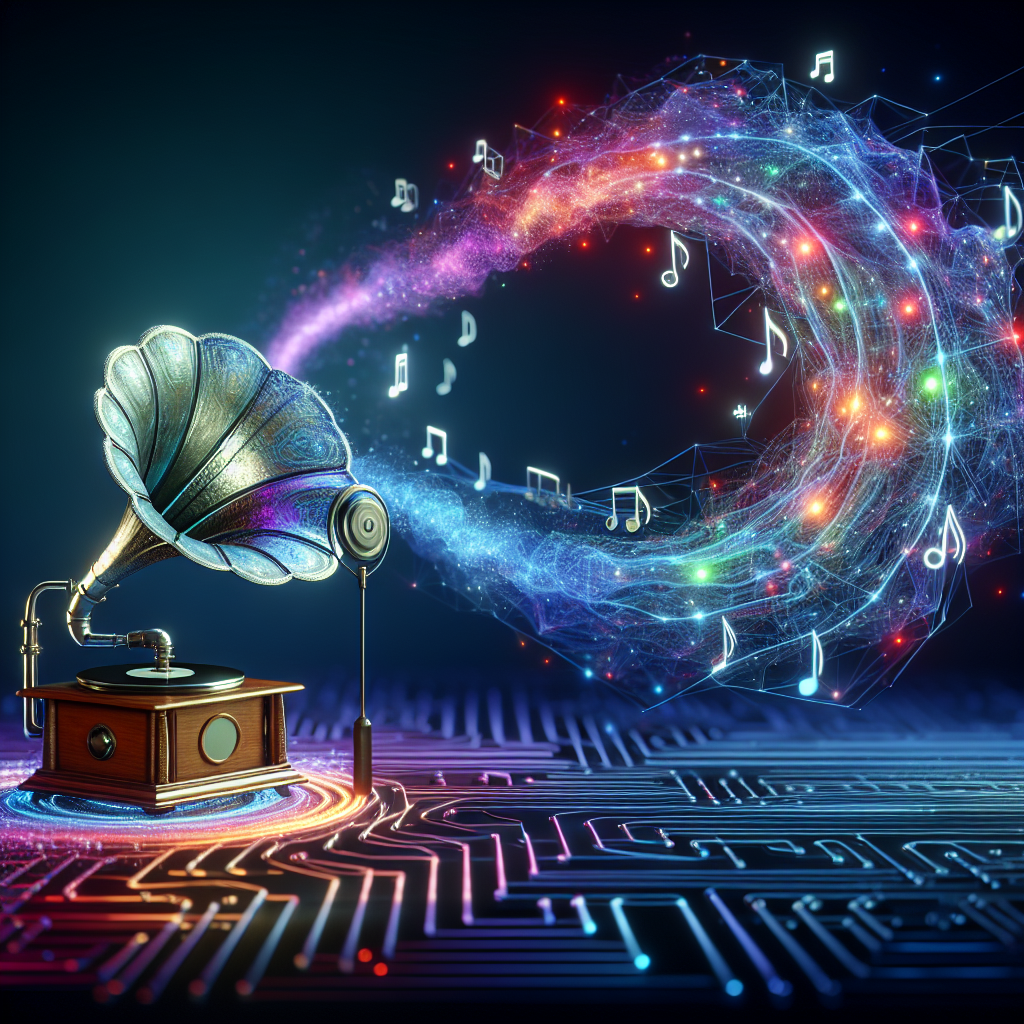Music streaming services have completely revolutionized the way we consume music in the digital age. With the rise of artificial intelligence (AI) technology, these services have become more sophisticated and personalized, providing users with a more tailored music experience than ever before. In this article, we will explore the evolution of music streaming services and the role that AI has played in shaping their development.
The Evolution of Music Streaming Services
Music streaming services first emerged in the early 2000s with the launch of platforms like Pandora and Last.fm. These services allowed users to listen to music online for free, supported by advertising revenue. However, they were limited in their functionality, offering only basic features like radio stations based on user preferences.
In 2008, Spotify was launched in Sweden and quickly gained popularity for its vast music library and user-friendly interface. Spotify introduced the freemium model, allowing users to listen to music for free with ads or pay for a premium subscription to access additional features like offline listening and higher audio quality.
Since then, the music streaming industry has exploded, with platforms like Apple Music, Amazon Music, and Tidal entering the market. These services have continued to innovate by offering exclusive content, curated playlists, and personalized recommendations to keep users engaged.
The Role of AI in Music Streaming Services
AI has played a crucial role in the evolution of music streaming services, enabling them to deliver a more personalized music experience to users. By analyzing user data and behavior, AI algorithms can generate recommendations based on a user’s listening history, preferences, and mood.
One of the key ways AI is used in music streaming services is through music recommendation systems. These systems analyze data points like song genre, tempo, and lyrics to create playlists tailored to each user’s taste. By leveraging machine learning algorithms, these systems can continuously refine their recommendations based on user feedback, ultimately leading to a more accurate and enjoyable music discovery experience.
AI is also used to enhance the user interface of music streaming services. For example, voice recognition technology allows users to control their music playback with voice commands, making it easier to navigate through their music library while on the go. Additionally, AI-powered chatbots can assist users with troubleshooting issues or provide personalized recommendations in real-time.
Furthermore, AI has enabled music streaming services to improve the audio quality of their music catalog. By employing algorithms that analyze audio signals and remove background noise, these services can deliver a more immersive listening experience to users, especially those who are audiophiles.
FAQs
Q: How does AI impact the music discovery process on streaming services?
A: AI algorithms analyze user data and behavior to generate personalized music recommendations, making it easier for users to discover new music that aligns with their taste.
Q: Can AI predict which songs will become hits?
A: AI can analyze data points like song structure, lyrics, and tempo to predict the potential success of a song. While not foolproof, these predictions can help music industry professionals make informed decisions about which songs to promote.
Q: How does AI improve the audio quality of music streaming services?
A: AI algorithms analyze audio signals and remove background noise, resulting in a cleaner and more immersive listening experience for users.
Q: Are there any privacy concerns associated with AI in music streaming services?
A: While AI algorithms analyze user data to generate personalized recommendations, there are concerns about the privacy and security of this data. It is important for users to be aware of how their data is being used and to have control over their privacy settings on these platforms.
In conclusion, AI has significantly impacted the evolution of music streaming services, enabling them to deliver a more personalized and immersive music experience to users. By leveraging AI algorithms for music recommendation, audio enhancement, and user interface design, these services have transformed the way we consume music in the digital age. As technology continues to advance, we can expect even more innovative features and capabilities to be integrated into music streaming services, further enhancing the user experience.

